License batteries?
Discharging batteries (portable, automotive and industrial) – uncomplicated and compliant
With Interzero – fast and uncomplicated
Batteries must be taken back and recycled. Transfer your obligations to take back and recycle batteries in Austria to Interzero Austria. Benefit from our many years of experience, as well as our individual solutions. Interzero Austria takes over the obligations to fulfill the battery regulation for you in Austria – no matter if portable, automotive or industrial batteries.
Flat fee portable batteries
Small amounts
- Total annual mass
- max. 120 kg (including lithium)
- No exact reporting of the mass
- austria-wide
per order
Flat fee industrial batteries
Small amounts
- Total annual mass
- max. 300 kg (including lithium)
- No exact reporting of the mass
- austria-wide
per order
Individual offer
Small amounts
- Message according to mass or number of pieces
- Household and commercial
- Tariff per category
- austria-wide
pdf Download
And this is how it works!
The easy way to comply with the Battery Directive!
Webshop
Visit our webshop for licensing! Step by step you will be guided to your contract
Consulting
You are not sure or still have questions. Contact us by mail or phone
Order
After filling out your data, you have ordered your contract
Compliance
If desired we take care of the complete processing
Visit the order portal now and conclude the licence agreement
Or contact us by email
Your advantages at a glance
Minimized risk of non-compliance
Individual advice
Europe-wide service
ONE contact person
References

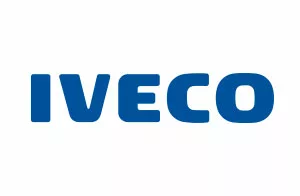
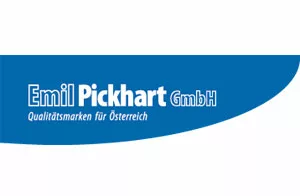


About Interzero
Join us in creating a future without waste. With our Zero Waste Solutions
Interzero is a recycling company with a global presence and over 1600 employees. Our most important tasks in Austria are the nationwide handling of waste disposal services, as well as the organization of logistics processes and the return and recycling of packaging. For us, sustainability means picking up waste and recyclable materials where they are generated and reintroducing them into the recycling loop in the most environmentally friendly way possible, over and above the legal requirements.
About Interzero
We at Interzero remove and recycle your waste professionally since 1991 in 17 European countries
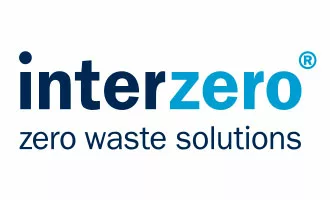
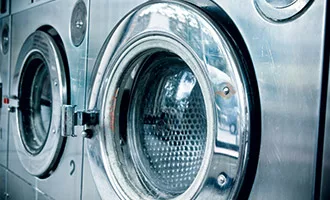


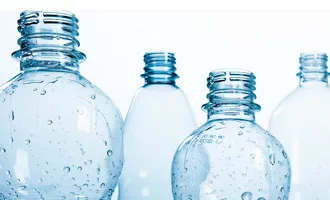
FAQ
According to the BattVO, a “battery” is a source of electrical energy consisting of one or more (non-rechargeable) primary cells or of one or more (rechargeable) secondary cells, obtained by direct conversion of chemical energy.
The Battery Regulation distinguishes between three categories of batteries:
- Device batteries – (conventional) batteries – button cells – battery packs – accumulators – lithium batteries
- Vehicle batteries – batteries for starters, lighting or ignition of vehicles (also lithium batteries)
- Industrial batteries – Batteries/accumulators for industrial or commercial purposes (including lithium batteries) – Batteries/accumulators for electric vehicles (including lithium batteries)
Exceptions: Batteries in
- Equipment, weapons, ammunition and war material (intended specifically for military purposes, serve to protect security interests)
- Equipment for use in space is not subject to the provisions of the BattVO.
Any person established in Austria who places batteries or accumulators, including batteries or accumulators incorporated in appliances or vehicles, on the Austrian market for the first time on a commercial basis, irrespective of the method of sale, including distance selling as defined in Section 5a of the Consumer Protection Act.
The obligations arising from the BattVO are divided into those that manufacturers/importers must in any case assume themselves and those that must or can be transferred to a collection and recovery system. As a customer of Interzero Austria, we offer you the complete assumption of all transferable obligations from the Battery Ordinance. 1. Portable batteries Non-transferable obligations:
- Participation in a collection and recycling system
- Registration via the website of the Federal Environment Agency (UBA)
- Labeling acc. § 6 BattVO – Symbol of the crossed-out garbage can – Capacity of the battery (from 26 September 2009) – Chemical symbol for mercury, lead and cadmium when the respective limit values are exceeded
- For final distributors: free take-back of spent batteries from the final consumer and corresponding information at the points of sale.
- Mail order business: free take-back of spent batteries from the end consumer or optional establishment of 2 collection points per political district.
Duties that must be transferred to a system:
- Reporting of the masses placed on the market to the coordinating body
- Construction and operation of min. 1 collection point per political district
- At least free take-back of spent batteries
- Collection and recycling of spent batteries
- Information for end consumers
2. Vehicle batteries Non-transferable obligations:
- Participation in a collection and recycling system
- Registration via the website of the Federal Environment Agency (UBA)
- Compliance with substance prohibitions acc. § 4 BattVO
- Labeling acc. § 6 BattVO – Symbol of the crossed-out garbage can – Capacity of the battery (from 26 September 2009) – Chemical symbol for mercury, lead and cadmium when the respective limit values are exceeded
- For final distributors: free take-back of spent batteries from the final consumer
- Mail order business: free take-back of spent batteries from the end consumer or optional establishment of 2 collection points per political district.
Duties that must be transferred to a system:
- Reporting of the masses placed on the market to the coordinating body
- Construction and operation of min. 1 collection point per political district
- At least free take-back of spent batteries
- Collection and recycling of spent batteries
- Information for end consumers
3. Industrial batteries Non-transferable obligations:
- Registration via the website of the Federal Environment Agency (UBA)
- Compliance with substance prohibitions acc. §4 BattVO
- Labeling acc. § 6 BattVO – Symbol of the crossed-out garbage can – Chemical symbol for mercury, lead and cadmium when the respective limit values are exceeded
Duties that can be transferred to a system:
- Reporting to the coordinating body of the masses placed on the market in the calendar year that are discharged via a system
- Take-back of spent batteries (regardless of origin, date of placing on the market or chem. Composition)
- Collection and recycling of spent batteries
- Information for end consumers
Self-importers are final consumers who purchase portable or automotive batteries from abroad for the operation of their company and for whom these batteries are generated as waste in the company. Self-importers must register via the website of the Federal Environment Agency (UBA). Furthermore, they must submit records of the recovered masses of spent batteries (portable and automotive batteries) to the coordination body once a year. Optionally, the notification can also be made via a collection and treatment system.
After signing and sending the contract, your licensing or manufacturer number will be sent to you. Here you will also be unlocked the area on our online portal to receive your confirmation of participation.
Contact us
Contact
Information
Collect and recycle old batteries – best with Interzero Austria!
Interzero is the ideal partner for the implementation of the obligations arising for distributors from the Austrian Battery Ordinance. Take advantage of our almost 20 years of experience by transferring your obligations to us and concentrate fully on your core business.
Old batteries must be taken back. Transfer your obligations under the Battery Ordinance in Austria to Interzero Austria GmbH and benefit from our experience as currently the second largest collection system in Austria. Anyone who puts batteries (portable, automotive or industrial) into circulation or imports them into Austria for the purpose of their own activities has to fulfill a wide range of take-back, collection and treatment obligations in addition to general requirements (substance bans, removability, etc.). This is what the legislator has prescribed in the Batteries Ordinance (Batterien-VO). Distributors of portable and automotive batteries shall fulfill the take-back, collection and treatment of these batteries in a mandatory manner by participating in a collection and recovery system. Distributors of industrial batteries can also conveniently transfer the obligations under the Battery Ordinance in Austria to a collection or recycling system. Or they make individual agreements with the buyers of the industrial batteries about the financing of the collection and treatment. Interzero Austria assumes your obligations under the Battery Ordinance (zinc-carbon batteries, alkaline-manganese batteries, lithium batteries, etc.) for the portable, automotive and industrial batteries you place on the market. And you can sit back with peace of mind and concentrate on your core business! Your advantages:
- Everything from a single source We specialize in the collection and recycling of batteries, but also of old electrical equipment, packaging and other waste from industry, trade and commerce. With our know-how, we develop individual services tailored to the respective products and waste.
- Modern reporting system You can easily and securely register the quantities you have placed on the market and view your “battery account” at any time via our online portal.
- Top price-performance ratio By using regional busbars, bundling disposal processes and our experience in treatment and recycling, we can organize the obligations arising from the Battery Ordinance cost-effectively.
- Service-oriented disposal No matter where and how you market your batteries, we collect the used batteries throughout Austria from municipal and district collection points and from dealers, distributors and workshops.
- International network The Interzero Group is the only provider in Europe that organizes the collection and treatment of batteries, but also of waste electrical equipment and packaging across national borders.

